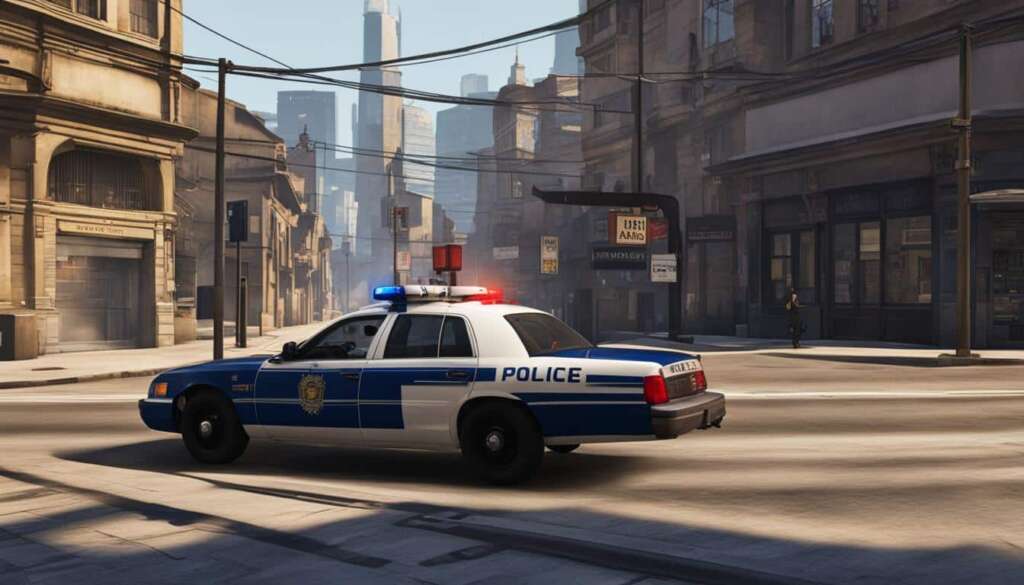Table of Contents
Have you ever wondered what the term “Grand Theft Auto” really means? In this article, we will delve into the definition and explanation of this commonly used phrase. Whether you’re a fan of the popular video game series or simply curious about criminal law, understanding the meaning of Grand Theft Auto, also known as GTA, is essential.
Grand theft auto is a serious criminal offense involving the unauthorized taking of someone else’s car with the intent to permanently or significantly deprive the owner of it. It goes beyond joyriding, which involves temporary car theft without the intent to permanently deprive the owner.
The name “Grand Theft Auto” is derived from the fact that it is a type of auto theft categorized as grand theft due to the high value of the stolen item. In many states, grand theft auto is deemed a felony offense that can lead to imprisonment for more than a year.
If you’ve ever wondered what GTA truly means, its definition revolves around the unlawful taking of someone’s car with the intention to permanently or significantly deprive the owner. Stay tuned as we explore the elements of grand theft auto, differentiate it from joyriding, and discuss the legal consequences and possible defenses.
What Constitutes Grand Theft Auto?
In order to be charged with grand theft auto, certain elementsmust be present. These elements include:
- Taking a car that belongs to someone else
- The stolen vehicle being worth more than a certain value (such as $950 in California)
- Not having the owner’s consent to take the car
- Moving the car, even if only a short distance
- Intending to permanently or significantly deprive the owner of the car
The specific elements may vary slightly depending on the state, but these are the general requirements for a grand theft auto charge.
“Grand theft auto involves the unauthorized taking of a vehicle with the intent to permanently or significantly deprive the owner of it.”
Differences Between Grand Theft Auto and Joyriding
While both grand theft auto and joyriding involve the unauthorized taking of a vehicle, there are key differences between the two offenses. Grand theft auto requires the intent to permanently or significantly deprive the owner of the car, while joyriding involves temporarily taking the vehicle without the intent to permanently deprive the owner. These differences in intent play a crucial role in distinguishing the severity of the offenses.
Another noteworthy distinction is the legal classification of the two crimes. Grand theft auto is generally charged as a felony offense, whereas joyriding is often considered a separate, lesser offense, sometimes categorized as a misdemeanor. The varying levels of severity between the two offenses are reflected in the potential penalties and legal consequences.
In certain circumstances, a defendant can be charged with both grand theft auto and joyriding if the circumstances warrant it. This may occur when the initial intent of joyriding shifts to a more serious intent to permanently or significantly deprive the owner of the vehicle. The ability to charge both offenses underscores the importance of intent and the progression of actions in criminal cases.
To provide a clearer overview, the table below summarizes the similarities and differences between grand theft auto and joyriding:
| Grand Theft Auto | Joyriding |
|---|---|
| Requires intent to permanently or significantly deprive the owner | Temporary taking without intent to permanently deprive the owner |
| Often charged as a felony offense | Often considered a separate, lesser offense (misdemeanor) |
| Potential imprisonment for over a year | Less severe penalties compared to grand theft auto |
| Possible to be charged with both offenses in certain circumstances | N/A |
Legal Consequences and Defenses for Grand Theft Auto
When it comes to grand theft auto, the legal consequences of a conviction can be severe. The penalties vary depending on the state and the specific circumstances of the case. In many states, grand theft auto is considered a felony offense, which can result in imprisonment for over a year, hefty fines, and probation. It’s crucial to understand the potential consequences that a grand theft auto conviction can bring.
However, it’s important to note that there are legal defenses that can be utilized to fight against a grand theft auto charge. These defenses aim to challenge the prosecution’s case and protect the defendant’s rights. Some common defenses include arguing lack of intent to steal the vehicle, asserting a good faith belief of ownership, demonstrating a lack of significant deprivation to the owner, proving consent of the owner, or even raising claims of false accusations. Consulting with a skilled criminal defense attorney is essential to explore all available legal options and build a strong defense strategy.
Defendants facing grand theft auto charges should remember that they have rights and it is crucial to protect them. Understanding the legal defenses and potential consequences can help individuals make informed decisions and navigate through the criminal justice system.
FAQ
What is the meaning of grand theft auto?
Grand theft auto, commonly referred to as GTA, is a serious criminal offense that involves the unauthorized taking of someone else’s car with the intent to permanently or significantly deprive the owner of it.
What are the elements of grand theft auto?
In order to be charged with grand theft auto, certain elements must be present, including taking a car that belongs to someone else, the stolen vehicle being worth more than a certain value, not having the owner’s consent, moving the car even if only a short distance, and intending to permanently or significantly deprive the owner of the car.
What are the differences between grand theft auto and joyriding?
Grand theft auto requires the intent to permanently or significantly deprive the owner of the car, while joyriding involves temporarily taking the vehicle without the intent to permanently deprive the owner. Additionally, grand theft auto is generally charged as a felony offense, while joyriding is often considered a separate, lesser offense.
What are the legal consequences and defenses for grand theft auto?
The legal consequences for a conviction of grand theft auto vary depending on the state and the specific circumstances of the case. It is considered a felony offense in many states and can result in imprisonment, fines, and probation. Defenses that can be raised include lack of intent to steal the vehicle, good faith belief of ownership, lack of significant deprivation to the owner, consent of the owner, and false accusations.













